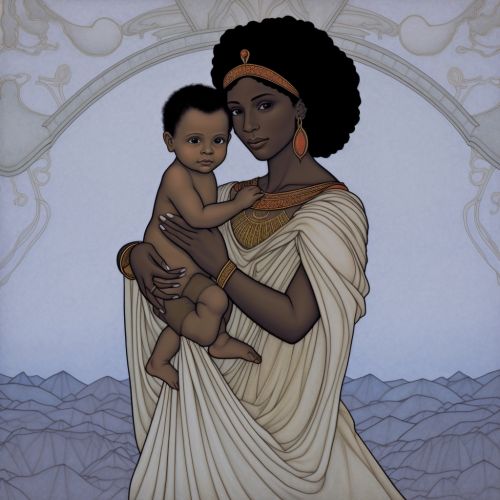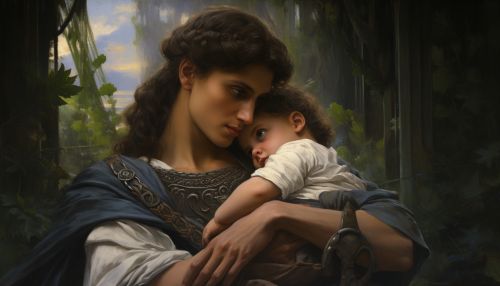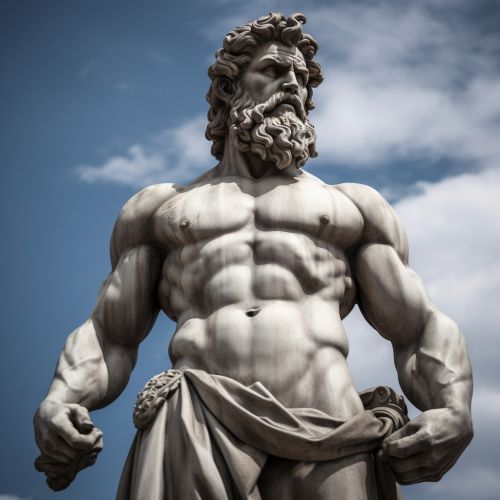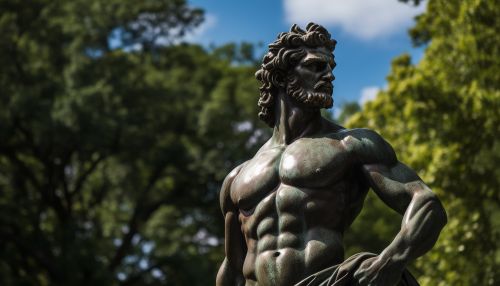Hercules
Origins and Birth
Hercules, also known by his Roman name, Hercules, is a figure in classical mythology who is best known for his incredible strength and for his twelve labors, tasks he was ordered to complete as penance for his actions. Hercules is the son of Zeus, the king of the gods, and Alcmene, a mortal woman. Zeus, who was always fond of beautiful women, fell in love with Alcmene and visited her one night, disguising himself as her husband, Amphitryon. From this union, Hercules was born, a half-god, half-human being of extraordinary strength.


Early Life and Education
Hercules was raised by his mother and stepfather, Amphitryon. From an early age, it was clear that Hercules was no ordinary child. He possessed superhuman strength and courage, traits that he inherited from his father, Zeus. To prepare him for his future, Hercules was sent to be educated by the centaur Chiron, who was known for his wisdom and knowledge. Chiron taught Hercules many things, including how to be a great warrior.
The Twelve Labors
The most famous stories about Hercules revolve around the Twelve Labors, a series of tasks that Hercules was ordered to complete as penance for killing his wife and children in a fit of madness, induced by the goddess Hera. The labors were designed to be impossible to complete, but Hercules, with his extraordinary strength and the assistance of the gods, managed to accomplish all of them. The Twelve Labors were:
- Slay the Nemean Lion.
- Slay the nine-headed Lernaean Hydra.
- Capture the Golden Hind of Artemis.
- Capture the Erymanthian Boar.
- Clean the Augean stables in a single day.
- Slay the Stymphalian Birds.
- Capture the Cretan Bull.
- Steal the Mares of Diomedes.
- Obtain the girdle of Hippolyta, Queen of the Amazons.
- Obtain the cattle of the monster Geryon.
- Steal the apples of the Hesperides.
- Capture and bring back Cerberus, the three-headed dog of Hades.
Later Life and Death
After completing his labors, Hercules had many other adventures. He joined the Argonauts in their quest for the Golden Fleece, fought in the Trojan War, and even ascended to Olympus to become a god upon his death. Hercules died when he was given a poisoned robe by his wife, Deianira. The robe had been soaked in the blood of the centaur Nessus, who had told Deianira that it would serve as a love charm. When Hercules put on the robe, it caused him unbearable pain. In his agony, Hercules built a funeral pyre and threw himself on it, choosing to die rather than suffer. When he died, Zeus sent his half-sister Athena to bring Hercules to Olympus, where he was made a god and married Hebe, the goddess of youth.
Legacy
Hercules is one of the most famous figures in classical mythology. His story has been told and retold in countless forms, from ancient Greek plays to modern movies and comic books. His strength and courage have made him a symbol of heroism and the embodiment of masculinity. His story continues to be a source of inspiration and fascination, a testament to the enduring power of myth and legend.


